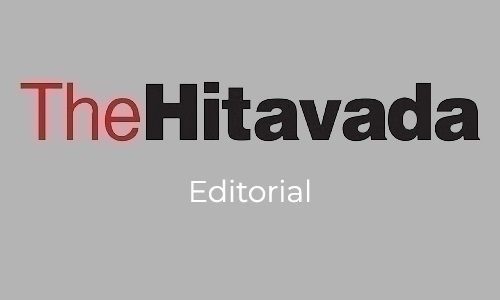west must act
| Date :06-Jul-2023 |

INDIA is rightly exercising utmost seriousness in calling out the neglect of the Western world towards the Khalistani extremist sentiments against India being fomented from their land. India’s External Affairs Minister Dr S Jaishankar has summoned the Canadian envoy to India and issued a demarche. But, given the past experience, India needs to mount pressure especially on the US, the UK, and Canada to curb Khalistani extremism. The Western powers dominating the world scene had protected Pakistan for long despite evidence of it aiding Khalistani terrorism in the Indian State of Punjab. Using the military aid given by the US, Pakistan’s Inter Services Intelligence (ISI) actively funded and provided training to Khalistani terrorists. On more than a couple of times, the terrorists had taken hijacked Indian aircraft to Lahore in Pakistan. Thanks to the Indian agencies utilising their resources and contacts well that the aircraft hijackings stopped gradually. But, the Khalistani terrorists flourished with Pakistani nutrition and neglect of the Western world.
Sadly, the response of Western countries has not improved despite the Khalistani terrorism claiming the life of Prime Minister of India Mrs Indira Gandhi, Chief Minister of Punjab Mr Beant Singh, former Indian Army chief General A S Vaidya, and several others in the aftermath of ‘Operation Blue Star’ in which Khalistani extremists occupying the holy Sikh site of the Golden Temple complex were eliminated.
The US, the UK, Canada, Australia are the prominent countries where these extremists appear to be well-perched since the time of the Sikh Home Rule movement. Of course, the extremist elements are getting funding from well-to-do supporters. However, barring the period in the wake of Kanishka aircraft bombing of 1985 in which many Canadian citizens were killed, Canada and the UK have provided mere lip-service to India as far as curbing Khalistani terrorism is concerned. In the past, Indian request to freeze the bank accounts of the identified extremist elements had yielded no results as these countries sought more evidence and cited several rules and procedures. However, the same countries asked banks to freeze accounts of suspected registered charities following 9/11 attacks in the US in the name of financial war on terrorism.
With rise of India in global order, Khalistani extremism is raising its ugly head not only in India but also in the Western countries. There is lack of tough action against the extremists despite their aggressive demeanor in front of the Indian High Commission in the UK, rallies and other activities allowed to be carried out openly in Canada, attack on Indian consulate in San Francisco in the US, and referendum conducted in the Australia. Some of these countries are not acting tough owing to compulsions of vote-bank politics as some of their constituencies are dominated by a vibrant community of Sikhs. These countries do not want to irk Sikhs. India also would not want to disturb the peace-loving and enterprising Sikh community. But, India definitely would want these countries to act against those supporting extremism.
It is time for India to act tough and mount pressure on these countries to prove that they do not support terrorism and extremism in the name of liberalism. These countries also must realise that they should not neglect Indian caution in this regard, as they did in the past regarding Pakistan-backed global terrorism. Else, they also will have to face consequences of nexus between Pakistan-backed terrorism and Khalistani extremism. The Western countries need to do more than lip-service and crack down on Khalistani and other extremists operating from their soil, out of the commitment towards international co-operative security.